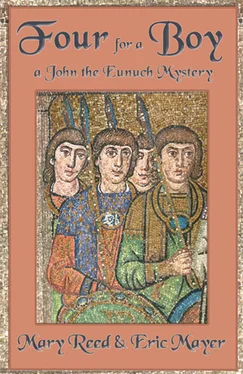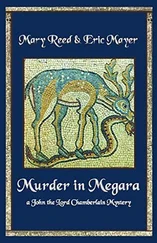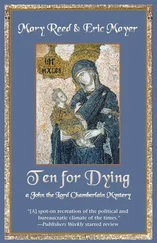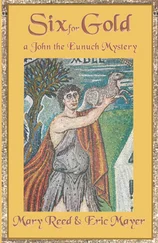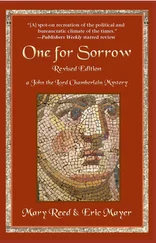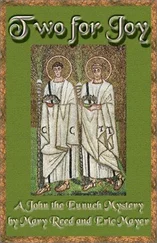Mary Reed - Four for a Boy
Здесь есть возможность читать онлайн «Mary Reed - Four for a Boy» весь текст электронной книги совершенно бесплатно (целиком полную версию без сокращений). В некоторых случаях можно слушать аудио, скачать через торрент в формате fb2 и присутствует краткое содержание. Год выпуска: 2011, ISBN: 2011, Издательство: Poisoned Pen Press, Жанр: Исторический детектив, на английском языке. Описание произведения, (предисловие) а так же отзывы посетителей доступны на портале библиотеки ЛибКат.
- Название:Four for a Boy
- Автор:
- Издательство:Poisoned Pen Press
- Жанр:
- Год:2011
- ISBN:9781615951710
- Рейтинг книги:5 / 5. Голосов: 1
-
Избранное:Добавить в избранное
- Отзывы:
-
Ваша оценка:
- 100
- 1
- 2
- 3
- 4
- 5
Four for a Boy: краткое содержание, описание и аннотация
Предлагаем к чтению аннотацию, описание, краткое содержание или предисловие (зависит от того, что написал сам автор книги «Four for a Boy»). Если вы не нашли необходимую информацию о книге — напишите в комментариях, мы постараемся отыскать её.
Four for a Boy — читать онлайн бесплатно полную книгу (весь текст) целиком
Ниже представлен текст книги, разбитый по страницам. Система сохранения места последней прочитанной страницы, позволяет с удобством читать онлайн бесплатно книгу «Four for a Boy», без необходимости каждый раз заново искать на чём Вы остановились. Поставьте закладку, и сможете в любой момент перейти на страницу, на которой закончили чтение.
Интервал:
Закладка:
As Trenico wandered off to converse with other guests who were now filing in, John glanced toward Felix. Now his lips did narrow and his jaw clamped reflexively, almost painfully. The big German was grinning. He obviously enjoyed John’s discomfiture.
“Laugh at me all you want, Felix,” John said in a low, furious voice. “But you would have had to obey that perfumed fop too if he’d ordered you to pour his wine.”
Felix’s expression darkened immediately. He had no opportunity to respond, however, since a cluster of guests was now entering the room, led by Theodora. Resplendent in white silk, she wore an ornamental gold circlet that very much resembled a crown.
***
As the dinner party progressed, John kept as close an eye, and ear, on the guests as his appointed station allowed. Scraps of conversation drifted over to him. The talk grew louder as more of the City Prefect’s fine wine was consumed.
Occasionally Felix vanished to patrol the garden. Or so he said. John wondered briefly if the excubitor had received orders about which he knew nothing or simply wanted to get away from his undesired companion for a while and had seized upon a fine excuse to do so.
John had to admit that Theodotus kept a fine table. Because of his work in the office of the Master of the Plate, his attention was drawn less to the culinary dainties offered than to the coruscating array of silver, gold, and glass tableware on which they arrived. He would not have given these ostentatious treasures a second glance in the past. Now, however, since his survival at the palace depended on successfully performing the duties he had been assigned, he had taken a close and prudent interest in such things.
He had eventually come to enjoy the work. Plates, jugs, cups, table settings, and banquets were more easily ordered than life. Especially life in the corridors of the Great Palace.
The evening wore on. John glanced repeatedly into the bowl of the large clock set in a corner.
The level marking the hours fell so slowly the water might have been frozen.
The conversation surged and ebbed like the murmur of the sea. Every so often a few distinguishable words floated to where John stood.
A guest who had emptied his wine cup more times than was wise remarked how odd it was that Theodotus had tactlessly chosen to outfit his servants in blue. After all, wasn’t it the Blues who were terrorizing the city?
“Why do you think he’s called the Gourd?” replied his neighbor. “He’s not exactly the brightest man in the empire, you know.”
“Ah! I thought he got the nickname from the monstrous shape of his head,” a third man chimed in.
The origin of the City Prefect’s nickname launched a lively debate.
John turned his attention elsewhere. He heard little of consequence.
Someone worried about Justinian’s illness. Two matrons, seated near enough for John to overhear their lowered voices, argued over the merit of the controversial sculpture in the Great Church. If they mentioned the man who had died at its base, John missed their comments.
As the guests ate and chatted, two girls serenaded them with flute music. Now and then they accompanied an older woman whose voice was a light, sweet soprano. The sound reminded John of his youth, when those working in the fields would sing as evening drew near, to honor the land and its bounty and celebrate their impending freedom from toil for a few hours. The recollection made him unexpectedly homesick. He reminded himself that he had no home now.
Here, those who never toiled complained to one another that the suckling pigs had been boiled too long, the fish not smoked long enough, and that the fruit soaked in wine was overripe. However, John noticed, they consumed it all readily.
The sighing trill of flutes ended and, in the sudden silence, heads turned toward the far end of the room as Theodotus rose to his feet. His splendid green robes were a contrast to the rough shirts and tunics he normally wore.
“The entertainment I promised is about to begin,” he announced. “But first a very special culinary treat will be brought in. Which reminds me. I believe you’ll have noticed that my servants are all dressed in blue. This is to remind you that although the streets are infested by Blues today, before long you’ll be as safe outside as you are among my blue-garbed slaves.”
Felix, who had resumed his post after one of his excursions around the garden, gave a soft grunt of contempt. He and John watched curiously as covered salvers were set in front of the diners.
“Please feel free to enjoy this unusual delicacy, my friends,” Theodotus smiled.
A rustle of movement filled the room as the guests lifted lids from salvers, followed by audible gasps and the rattle of lids being set hastily down. No one spoke.
John leaned forward slightly, looking over the shoulder of the nearest diner.
Steaming on the salver in front of the man was half a large, baked gourd.
“Now it is commonly said these things are inedible.” Theodotus sounded almost gleeful. “They are bitter and tough, not to mention misshapen. People make fun of those who grow them. Why bother to nurture such an ugly vegetable, they ask. My cook protested at the very notion of cooking them. But you know me. When I order a thing done, I expect it done.”
A single, sharp caw of laughter cut through the ensuing silence. It was Theodora.
“Eat,” Theodotus said. “Enjoy yourselves. I order it.”
Cowed, the diners dutifully ate their unexpected course. John imagined that no matter how the concoction tasted, most of the guests were having a hard time swallowing the insult with which it was seasoned.
Before long, Theodotus clapped his hands sharply. Instantly two burly attendants entered the room, carrying between them a glowing brazier. They placed it in front of Theodotus and departed.
“As you’ll see, I also ordered my cook to prepare another surprise for you.”
The pair of attendants reappeared, this time bearing an iron cauldron hanging from a stout pole. They began to circle the dining room, displaying its contents to the guests. A few diners shifted in their seats to move away, as if alarmed. As it passed by, John could see that the mixture in the cauldron was still bubbling.
“Done to perfection!” Theodotus’ enormous head bobbed with satisfaction. “Not that it takes much skill to boil pitch.”
An acrid smell overpowered the delicate scent of the room’s now wilting flowers. Guests leaned this way and that to obtain a better view. A careless elbow knocked over a wine cup. Its dark contents ruined silk robes worth half of a laborer’s lifetime earnings.
Finally the cauldron, its circuit complete, was hefted onto the burning brazier.
Theodotus looked down at the roiling, viscous substance in the cauldron. “Good. Let’s be certain it stays hot. Now, perhaps, it is time to prepare another dish. I am indeed a man of many talents, as I believe I have overheard some of you kindly remark.” He rolled up his sleeves, revealing short, brawny arms.
“Honored guests, friends, and Theodora, I promised entertainment and I am a man of my word. You have all seen the pitch bubbling. Can you imagine its effect on living flesh? And how delicate would be the flavor of something so freshly cooked?”
A murmur ran through the crowd as a servant appeared with a caged dove. Theodotus grasped the short chain fastened to the top of the cage and swung it out over the boiling pitch.
There were scattered cries of alarm.
“What? So squeamish? Haven’t you just partaken of the delicate cooked flesh of creatures similar to this bird? Or perhaps even its family?” He let a short length of chain play out and the cage dropped toward the cauldron, stopping short of its rim.
Читать дальшеИнтервал:
Закладка:
Похожие книги на «Four for a Boy»
Представляем Вашему вниманию похожие книги на «Four for a Boy» списком для выбора. Мы отобрали схожую по названию и смыслу литературу в надежде предоставить читателям больше вариантов отыскать новые, интересные, ещё непрочитанные произведения.
Обсуждение, отзывы о книге «Four for a Boy» и просто собственные мнения читателей. Оставьте ваши комментарии, напишите, что Вы думаете о произведении, его смысле или главных героях. Укажите что конкретно понравилось, а что нет, и почему Вы так считаете.
